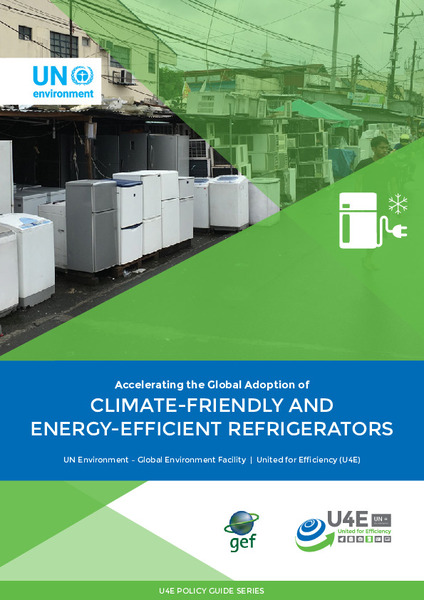| dc.contributor | Industry and Economy Division | en_US |
| dc.contributor.author | United Nations Environment Programme | en_US |
| dc.contributor.author | United for Efficiency (U4E) | en_US |
| dc.contributor.author | Global Environment Facility | en_US |
| dc.date.accessioned | 2023-07-28T06:20:13Z | |
| dc.date.available | 2023-07-28T06:20:13Z | |
| dc.date.issued | 2017 | |
| dc.identifier.uri | https://wedocs.unep.org/20.500.11822/43094 | |
| dc.description | In 2015, in developing countries and emerging economies, residential refrigerators accounted for approximately 10 percent of global electricity consumption in households. In those countries the number of refrigerators in use is expected to double to just under two billion in the next 15 years. In developing countries a market transformation to climate-friendly and energy-efficient household refrigerators can attain energy savings of more than 60 per cent. | en_US |
| dc.format | pdf | en_US |
| dc.language | English | en_US |
| dc.rights | Public | en_US |
| dc.subject | energy efficiency | en_US |
| dc.subject | refrigerator | en_US |
| dc.title | Accelerating the Global Adoption of Climate-friendly and Energy-efficient Refrigerators | en_US |
| wd.identifier.sdg | SDG 7 - Affordable and Clean Energy | en_US |
| wd.identifier.sdg | SDG 15 - Life on Land | en_US |


